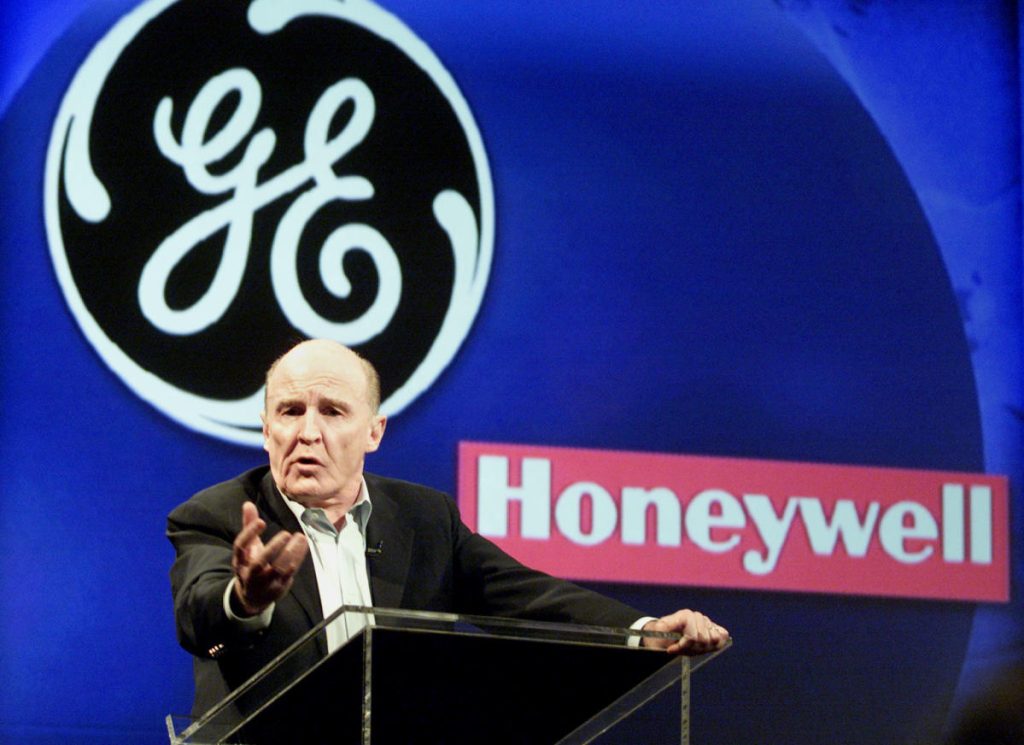The legacy of Jack Welch, the former chairman and CEO of General Electric, is unraveling as Dave Calhoun, an acolyte of Welch, steps down as chief executive of Boeing. The end of General Electric as a publicly traded company is near as the conglomerate is set to split into GE Vernova and GE Aerospace, leaving behind a messy legacy of accounting games and questionable practices. Larry Culp, the current CEO of GE, has announced plans to split the company into three pieces, none of which will carry the General Electric name. This marks a significant shift from the days when Welch was hailed as the Manager of the Century and General Electric was considered the world’s most respected company.
Culp is the first CEO of GE who was not a company employee, following unsuccessful stints by two other Welch followers, John Flannery and Jeff Immelt. Immelt, who succeeded Welch as CEO, lasted for 16 years with less-than-mediocre results. The irony of Calhoun resigning just before General Electric’s name vanishes from the markets highlights the downfall of Welch’s legacy. A list compiled by Allan Sloan of unsuccessful CEOs mentored by Welch reveals a pattern of failures and challenges faced by those who tried to emulate Welch’s management style, known for annual employee firings and accounting tricks to meet quarterly earnings goals.
Despite Welch’s success as a CEO, his questionable practices and reliance on financial assets over manufacturing capabilities have come to light in the aftermath of his retirement from GE. The Terrible 13 Welch followers, as described by Sloan, serve as a cautionary tale that what worked for Welch may not be applicable in today’s business environment. Welch’s ranking and yanking strategy, focused on short-term gains and earnings manipulation, does not align with sustainable and ethical business practices. The struggles of Welch’s mentees, particularly in the case of Boeing, raise questions about the effectiveness of Welch’s leadership methods in modern corporations.
The unraveling of General Electric’s legacy signals a shift in the corporate world towards more transparent and ethical business practices. The departure of Welch disciples like Calhoun from top leadership positions reflects a growing awareness of the shortcomings of Welch’s management style in today’s competitive landscape. As GE prepares to split into separate entities, the end of an era marked by Welch’s influence signifies a turning point for the business community. The lessons learned from the failures of Welch mentees emphasize the importance of responsible leadership, long-term planning, and integrity in corporate governance.
In conclusion, the end of General Electric’s era combined with the resignation of Dave Calhoun as CEO of Boeing underscores the changing dynamics of corporate leadership and the reevaluation of Welch’s management legacy. The challenges faced by Welch mentees, the reorganization of GE, and the evolving business landscape serve as a reminder of the need for ethical, sustainable practices in modern corporations. As the name of General Electric fades from the stock market, the lessons learned from the era of Welch’s influence highlight the importance of adaptability and integrity in navigating the complexities of today’s business world.


